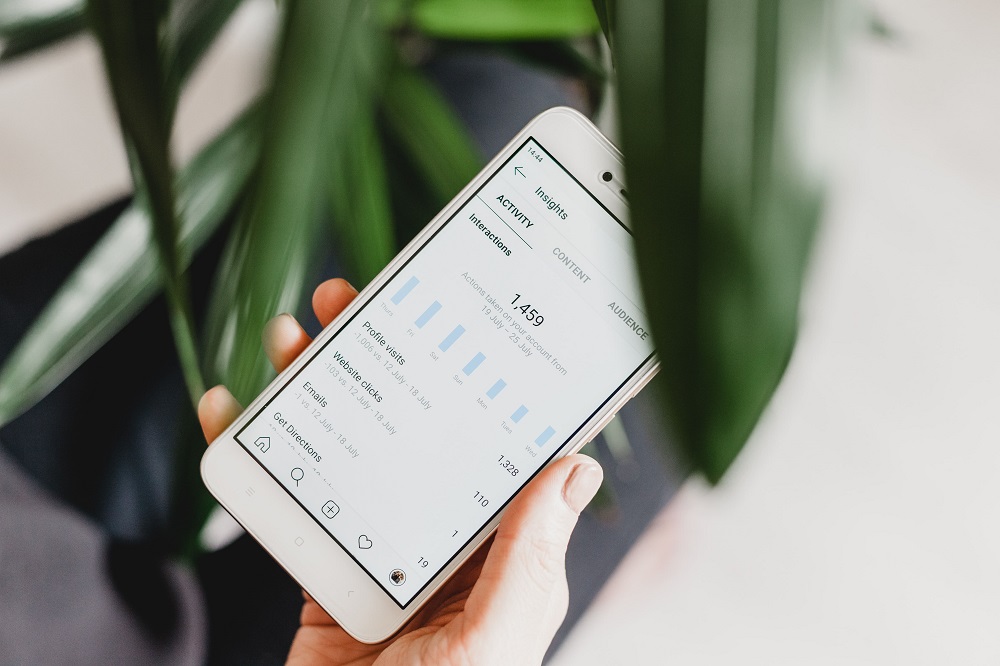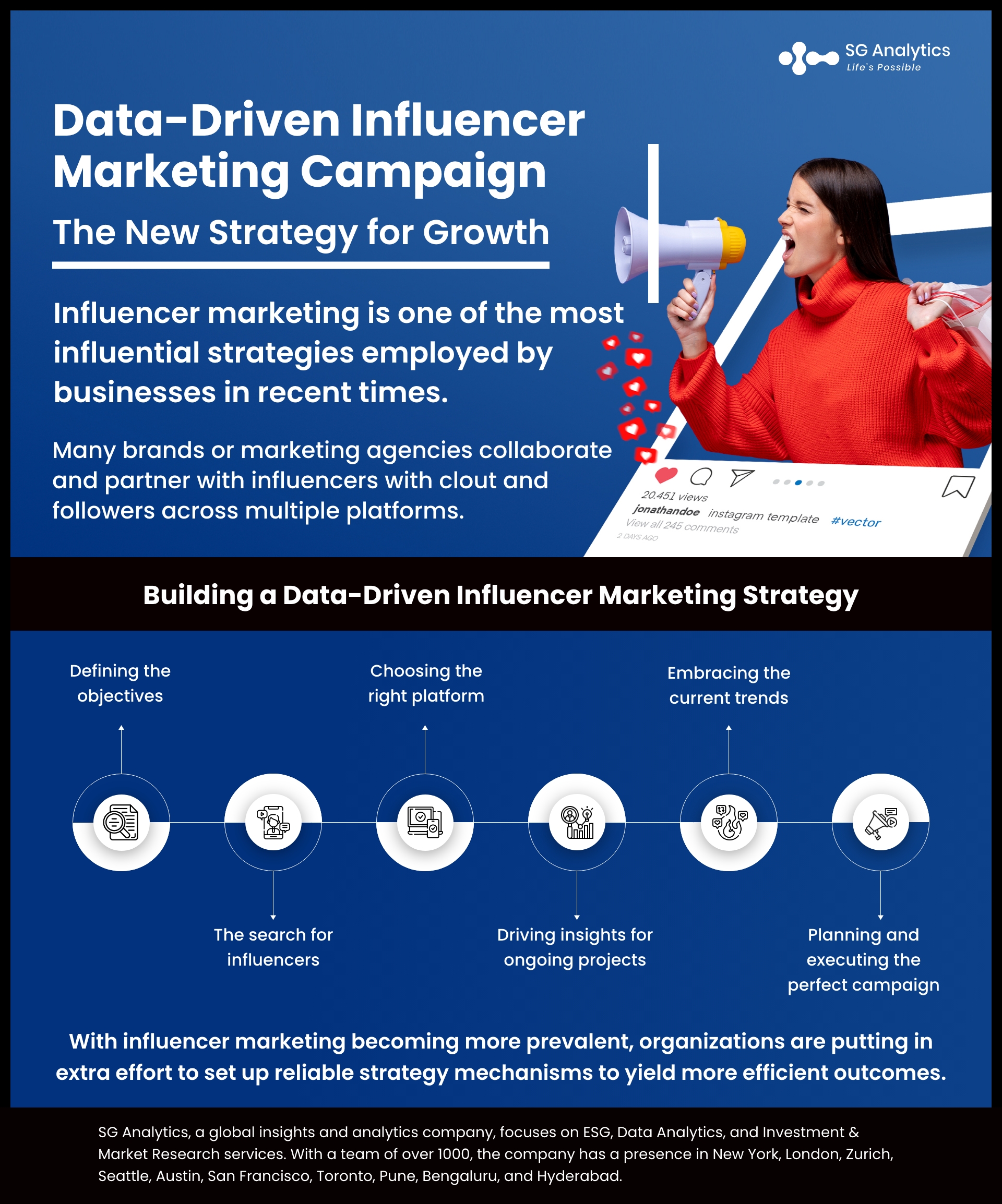Marketing terms for the moment, 'influencer marketing' is on the radar of every marketer and brand. Compared to SEO and rate per thousand impressions, influencer marketing is slowly emerging as the new strategy to attract the right audience.
Influencer marketing strategy is one of the most prevalent marketing strategies employed by businesses in recent times. Many brands or marketing agencies are collaborating and partnering with influencers with clout and followers across multiple platforms.
Influencers today have captivated their audience’s attention, enabling them to establish trust and authority. Due to this reason, they are becoming a powerful tool for brands to influence their consumer actions and decisions.
With social media ushering in the age of user-generated content, influencer marketing is equipping brands with a more powerful approach than corporate marketing campaigns.
Customers today want to experience raw, unfiltered, and authentic posts that speak to their fears and dreams. As a result, influencer marketing is evolving to be a prominent tool for brands to raise brand awareness and drive conversions. While there are some unavoidable risks, with the right insights to guide every decision, influencer marketing can be highly profitable for a brand's bottom line.

Read more: The Ultimate Guide: Tips to Choose a Top Marketing Analytics Company
Data: The Gold Mine for Influencer Marketing
Influencer marketing statistics in the last few years have portrayed a robust picture. Agencies, companies, and marketers are identifying the potential for influencer marketing to establish, solidify, and elevate their brand's presence in the market.
However, data is a vital necessity to see the complete picture and to make the influencer marketing strategy work. And the process begins even before a brand establishes a connection with the influencer. Data is used to inform where, when, and why influencer marketing should be used in the brand campaign. Data accumulated on consumer behavior helps in understanding the target audience, their online behavior, as well as the best time and strategy to engage with them.
When looking at data, it is important to look beyond the engagement rates and click-through rates. It is important for marketers to determine which influencers will help in driving the most ROI from a campaign. In addition, it is equally important to track the effectiveness of a campaign to understand if the influencers are targeting the right audience.

The Power of Data-Driven Influencer Campaigns
Influencer marketing has slowly carved out a space of its own in the marketing world, and the trend is not going to go away anytime soon. Researchers have predicted that influencer marketing campaigns are set to reach $24.1B by the year 2025.
While there lie some inevitable underlying risks, such as fake influencers and low-engagement audiences, influencer marketing is highly profitable for brands and their bottom line if the right set of data insights is used to guide the marketing decisions. However, influencer marketing campaigns are likely to fall flat if the strategies are not backed by the data, including the ideation of the campaigns, the selected influencer, and the flow of the influencer strategy forward.
Read more: AI in Marketing: An Essential Tool for Modern Marketers
Building a Data-Driven Influencer Marketing Strategy
Today, influencer marketing has progressed from being a social media buzzword to one of the most influential tools in the digital world for businesses. With traditional ways of advertising struggling to capture the attention of new-media audiences, brands globally are turning to influencers to directly connect with both their existing as well as potential customer bases.
While influencer marketing is proving to be a successful enterprise, many brands are still struggling to find the best influencer and devise a strategy that is equally effective for them. This is the reason why mastering data-driven influencer marketing strategies is vital for brands looking to find an edge, as well as working to solidify their position in the market.

Let's explore some of the steps involved in designing a strong data-driven influencer marketing strategy.
-
Defining the Objectives
Before beginning the campaign planning and execution strategy, it is important to determine the goal that needs to be accomplished with a data-driven marketing campaign, along with the steps to carry it out. Platforms, influencers, and content should be decided on based on the brand's objectives.
They should also focus on brand mentions as well as product reviews to further increase brand awareness. However, paying influencers is not enough to increase product sales; offering consumers coupon codes and special discounts to influencers’ followers can also be a good addition to the campaign.
-
The Search for Influencers
Once the campaign's objective is defined, the next step is to determine influencers that align with the brand. This phase will require some time as the number of influencers is growing by the day. It is vital to identify influences who are already in the target audience. Influencers with more followers, popularity, and sponsored partnerships are considered more successful. Micro-influencers with less than 50K followers and macro-influencers with more than 50K followers can help your brand in generating higher engagement rates and ROI.

Read more: Market Research Role: Guide to Decision Making in Business
-
Choosing the Right Platform
When devising a marketing campaign in terms of content, project goals, and other factors, thorough research will allow them to select the best platform for brand promotion. Instagram today is considered the most popular social media platform when considering sponsored posts and broader audience reach. Today more than 23% of marketers plan to integrate influencer marketing into their promotional campaigns. Instagram helps brands to optimize their projects with renowned influences on the platform. And the saturation of existing markets is further making it easier for brands to stand out across different platforms with fresh ideas.
-
Driving Insights for On-Going Projects
Today the major goal of any marketing campaign is to reach the target customers as quickly as possible after finding the right influencers and launching the campaign on the right platform. They can optimize their marketing campaign by breaking it down into smaller parts and evaluating the metrics at regular intervals to track growth. The sales funnel model can also be integrated to track results. By incorporating marketing messages, brands can complete several tasks and connect with their consumers through a series of important steps, ranging from brand awareness to action.

-
Embracing the Current Trends
Identifying and following current industry trends is a popular way for brands to employ data collection in the context of influencer marketing. It is also important to collect current user trends across different domains of the industry. This will help in assisting the marketer as well as the influencer in deciding which components to devote more time and production as well as resources, thereby determining where to direct the dedicated marketing dollars.
-
Planning and Executing the Perfect Campaign
Measuring the outcomes of an influencer marketing campaign requires extra planning. Brands should align their influencer campaigns with strategic business goals to witness the results through reliable data. It is about making attractive content across platforms that have in garnering attention and engaging the audience for a longer time.
Read more: From Awareness to Adoption: Marketers are Exploring New Ways for Technology Adoption

Final Thoughts
Handling all of the accumulated data is a time-consuming task that mandates a thorough understanding of how influencer marketing campaign works. Data-driven influencer marketing involves analyzing every aspect of a marketing campaign to identify and understand the effectiveness of every influencer, along with the strategy to enhance future campaigns.
With influencer marketing continuing to evolve and become more prevalent, organizations are putting in extra effort to set up reliable strategy mechanisms to yield more efficient outcomes.
With a presence in New York, San Francisco, Austin, Seattle, Toronto, London, Zurich, Pune, Bengaluru, and Hyderabad, SG Analytics, a pioneer in Research and Analytics, offers tailor-made services to enterprises worldwide.
A leader in Market Research, SG Analytics enables organizations to achieve actionable insights into products, technology, customers, competition, and the marketplace to make insight-driven decisions. Contact us today if you are an enterprise looking to make critical data-driven decisions to prompt accelerated growth and breakthrough performance.









